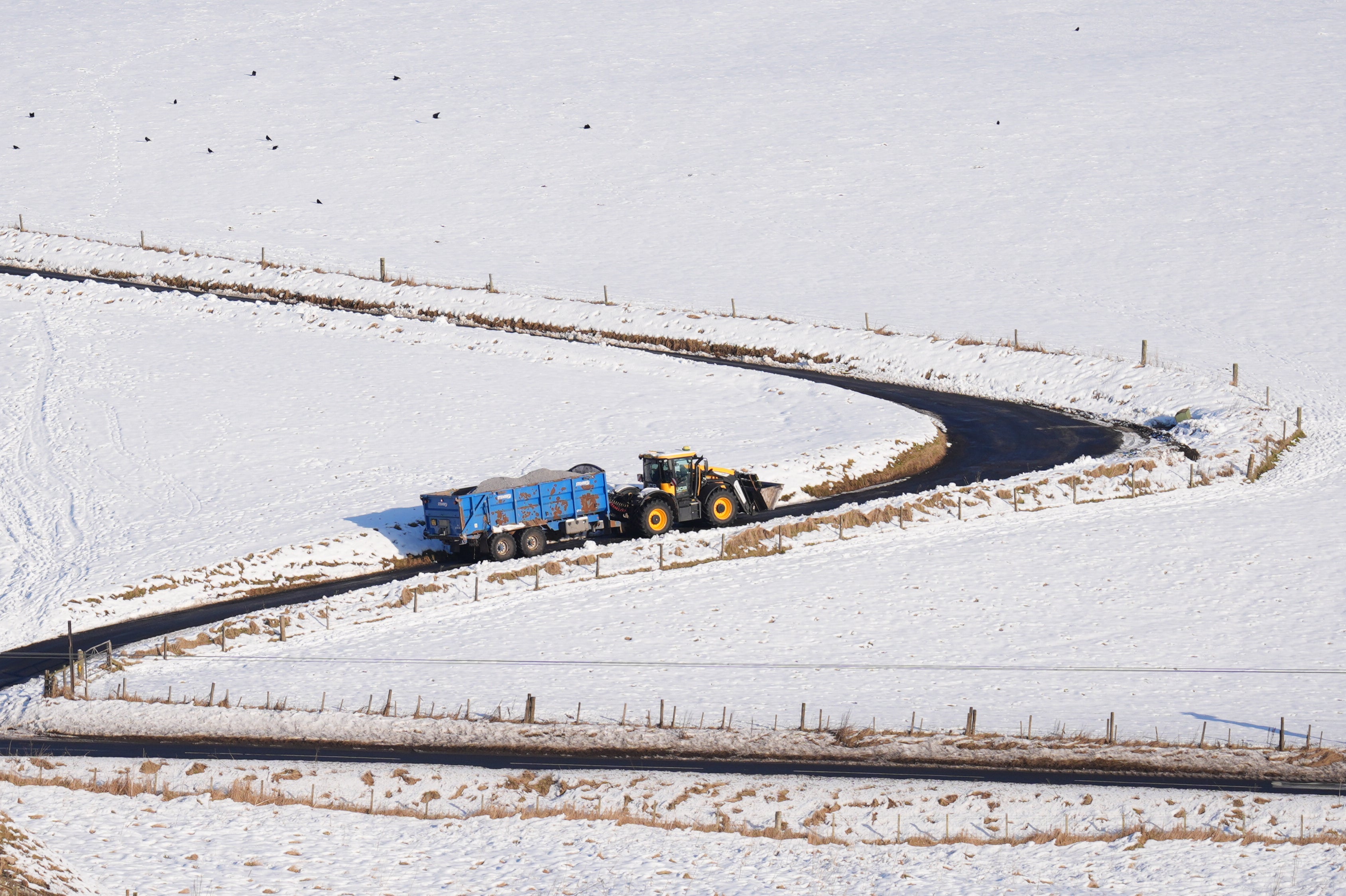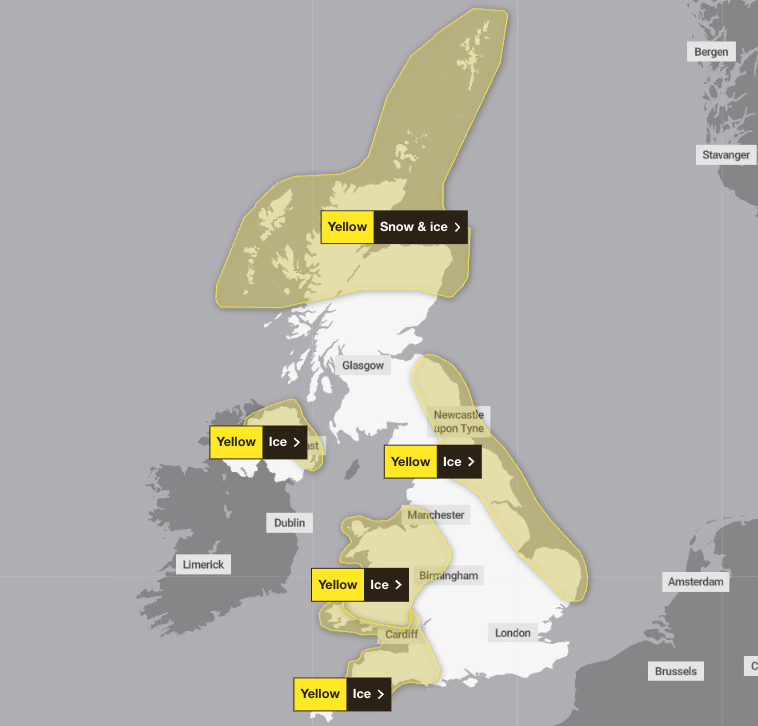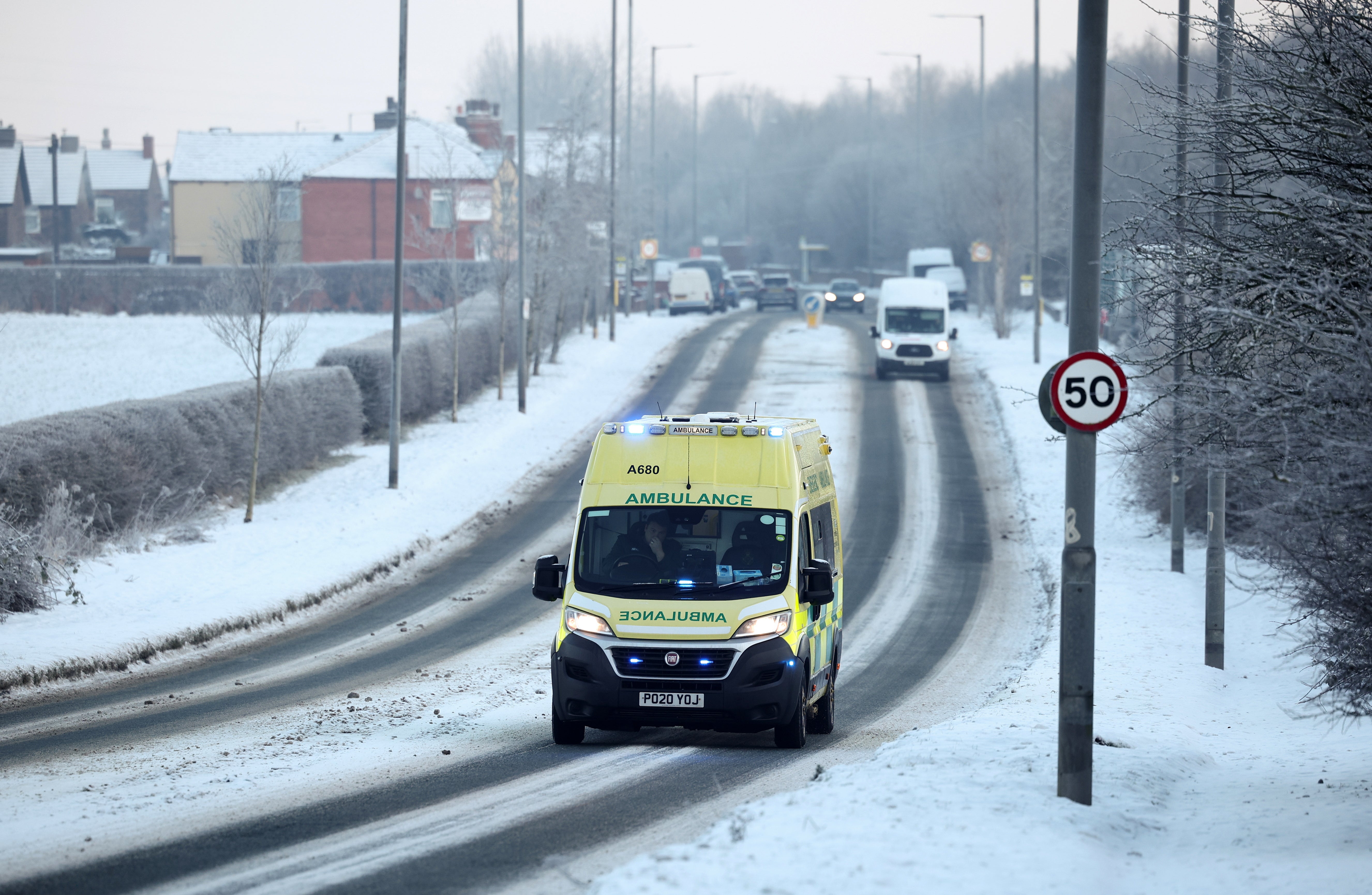Your support helps us to tell the story
From reproductive rights to climate change to Big Tech, The Independent is on the ground when the story is developing. Whether it’s investigating the financials of Elon Musk’s pro-Trump PAC or producing our latest documentary, ‘The A Word’, which shines a light on the American women fighting for reproductive rights, we know how important it is to parse out the facts from the messaging.
At such a critical moment in US history, we need reporters on the ground. Your donation allows us to keep sending journalists to speak to both sides of the story.
The Independent is trusted by Americans across the entire political spectrum. And unlike many other quality news outlets, we choose not to lock Americans out of our reporting and analysis with paywalls. We believe quality journalism should be available to everyone, paid for by those who can afford it.
Your support makes all the difference.
The UK is bracing for its coldest night of the winter so far, with temperatures forecast to plummet close to -20C in some areas.
Four weather warnings for ice are in place for Friday, with a “bitterly cold night” forecast on Thursday before Britain begins to see out the vicious cold snap.
The past week has seen snow blasts, travel chaos and temperatures as low as -13C, as blankets of snow fell across large areas of the UK, leaving hazardous icy patches in their wake.
Milder air will begin pushing its way into the UK from the South West on Friday, signifying the beginning of the end of the cold snap.

But a number of yellow weather warnings remain in place for Thursday night and into the morning, with dangerous icy conditions still likely the next day.
Two yellow warnings for ice will be in place in Wales, Northern Ireland and England’s east coast until 10am on Friday, with wintry showers expected to cause icy patches and travel disruption.
A warning for snow and ice in northern Scotland will also be lifted at 10am on Friday, while an ice warning in southwest England and south Wales will be in place from 3am until 11am.
Thursday night is forecast to be the coldest of the winter, with the Met Office expecting temperatures as low as -16C in the Scottish Highlands and high ground in northern England. The BBC reports Scotland and the Pennines could see temperatures dip close to -20C.

A UK Health Security Agency (UKHSA) amber cold health alert has been extended to last until Tuesday.
Met Office chief meteorologist Paul Gundersen said: “Temperatures will also be well below freezing across much of the UK so there is a continued risk of ice overnight and through Friday morning’s rush hour.”
Wednesday night was already the coldest of the winter so far for England, Wales and Northern Ireland, which saw temperatures of -11.2C, -7.9C and -7.2C respectively.
The UK’s coldest temperature recorded was at Tulloch Bridge in Inverness-shire, which saw temperatures plunge to -12.4C – just short of the winter low of -13.3C recorded early on Monday morning.

It follows a week of travel chaos, with flight delays, damage to train tracks and buses rerouted as a result of snowfall and icy conditions.
Manchester Airport was forced to close its runways on Thursday morning due to “significant levels of snow”. The runways opened later in the morning, but multiple flights were delayed as a result, the airport said in an announcement on X.
Transport for Wales earlier closed some rail lines due to damage to the tracks following a period of “heavy wind, rain and snow”, and buses will replace trains between Llandudno Junction and Blaenau Ffestiniog until Monday at the earliest.
As a result of flooding, a Great Western Railway line between Liskeard and Looe in Cornwall is still closed.

Meanwhile, hundreds of schools across the country have also been forced to close this week due to dangerous icy conditions.
Although cold weather will continue past the weekend, milder air will begin to push in from Friday as the cold spell starts to end.
Mr Gundersen added: “Milder air will attempt to move into the UK from the southwest on Friday morning, heralding the end of this impactful cold spell.
“Increasing cloud and light rain, perhaps preceded by a little snow, will begin to affect northwestern then northern parts of the UK through the weekend.
“Here, temperatures will be back to around average by Sunday, and on Monday it’ll be much milder, with temperatures reaching double digits in Northern Ireland, northern England and Scotland.”

